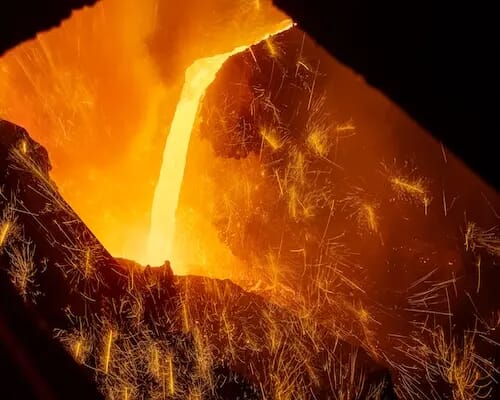
Which Types of Air Compressors Work Best for Metallurgy Industry
November 29, 2023
Stitching It All Together: Air Compressors in the Textile Manufacturing Sector
December 20, 2023Air Compressors in the Food Industry: Pneumatic Solutions for Quality and Safety
Kaishan USA | December 13, 2023 | Uncategorized
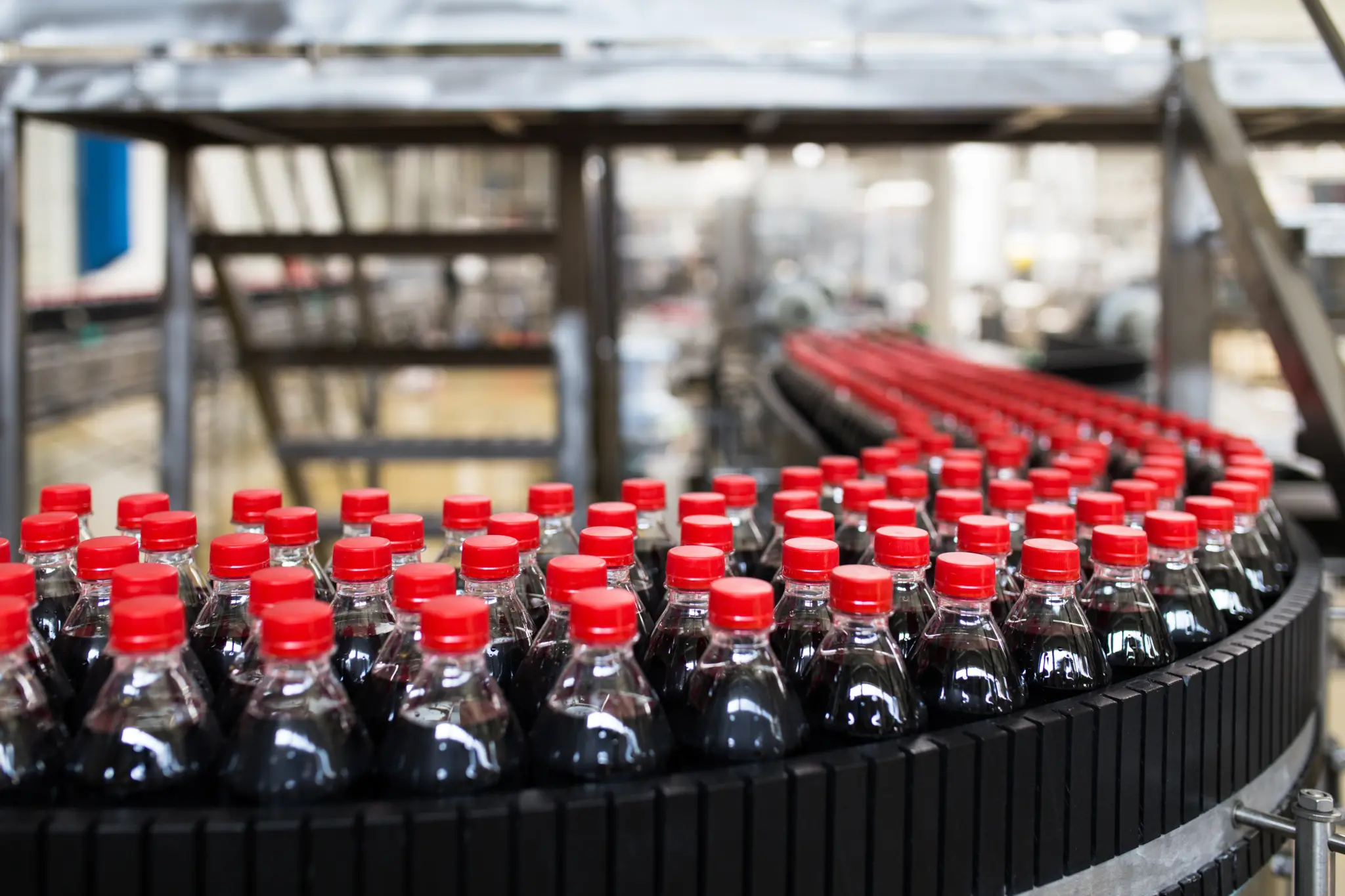
Compressed air helps put the carbonation in beverages.
Because of the critical nature of our food supply, national and state regulators closely monitor food processing plants to prevent contamination or other threats. The industry’s use of compressed air means that its application of air compressors is closely regulated as well.
Industrial Air Compressors for Food Processing Plants
You’ll find air compressors in every stage of the food and beverage production process because of their versatility, cleanliness and flexibility.
From preparation and processing to packaging and distribution, air compressors power equipment from large machines to hand-held power tools and precision pneumatics.
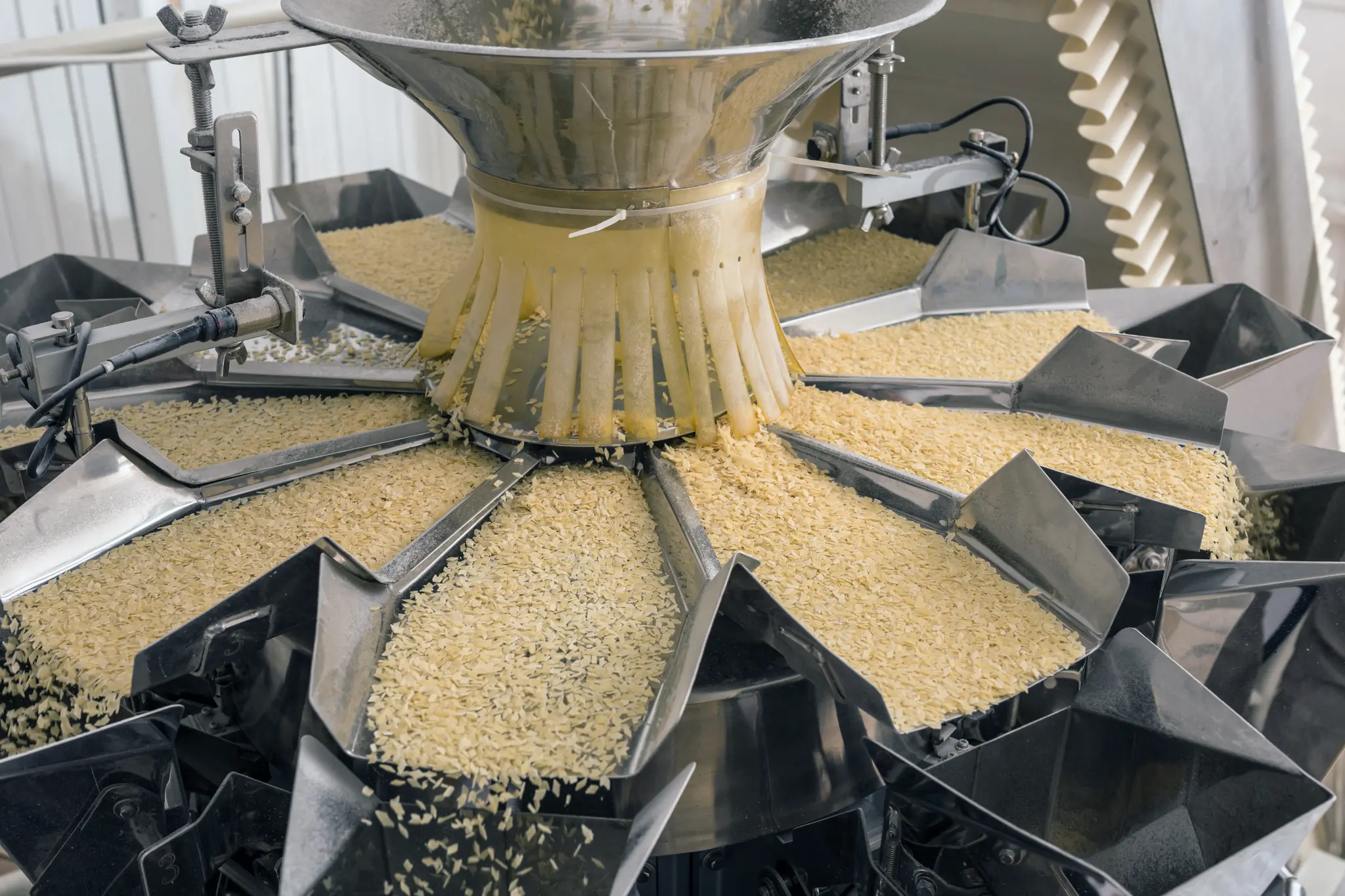
Compressed air allows food processors to activate valves, move conveyor belts and handle delicate food items with care and precision.
Pneumatic systems powered by compressed air move ingredients, packaging materials and finished products on production lines. Air compressors, power mixers, blenders and pumps and are essential for carbonating beverages.
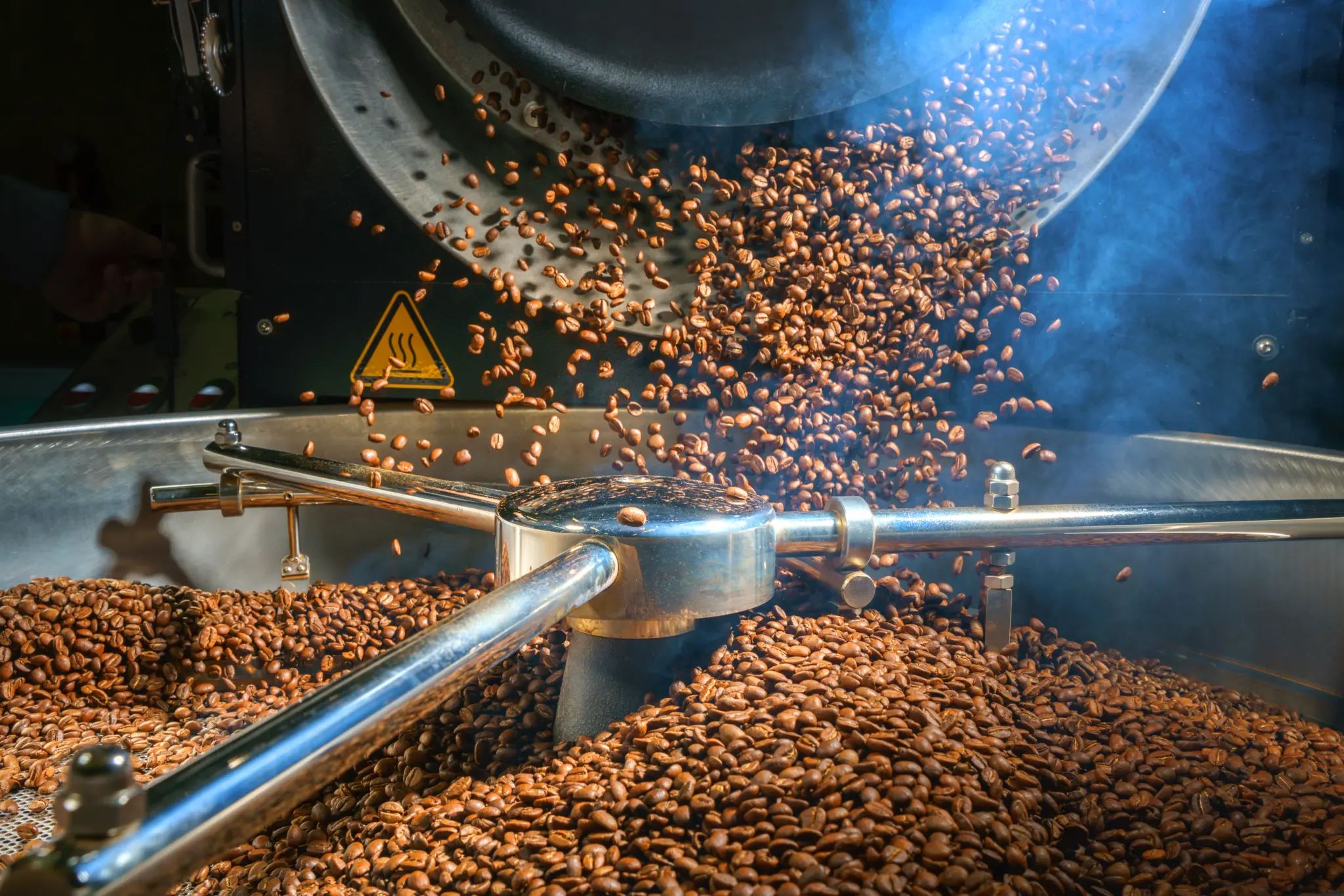
Air compressors provide the air that powers mixers and blenders in food processing plants.
They’re even used in cleaning and rinsing processes that ensure the hygiene of production equipment and processes.

Food processors are scrupulous about cleanliness, understanding that the quality and taste of their product is critical to their success.
Rotary Screw Compressors
Rotary screw models are the compressors of choice in the food processing industry because of their rugged reliability, energy efficiency, continuous duty, airflow consistency and quiet operation.
Oil-Free vs. Oil-Lubricated
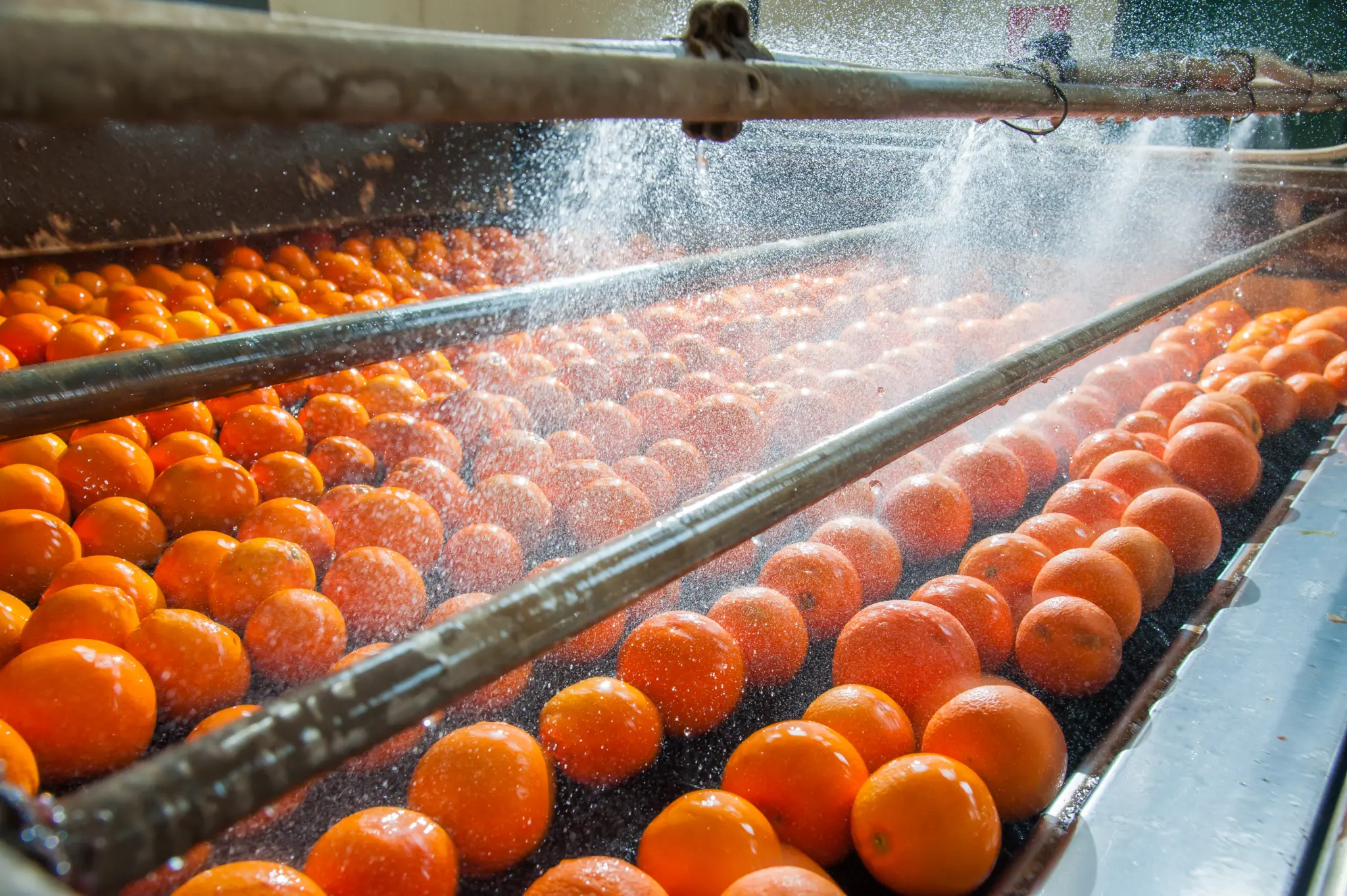
Food and beverage companies are required to follow stringent quality regulations, including the use of USDA- and NSF-approved food-grade fluids.
Food processors must comply with FDA regulations and make sure the compressed air they use does not contaminate the product. Many processors turn to oil-free compressors to meet those requirements.
Kaishan KROF: Changing the Rules of the Oil-Free Game
Kaishan’s new oil-free compressor, the KROF, sets new standards for reliability, efficiency and warranty protection and produces ISO 8573-1 Class 0 oil-free compressed air.
The KROF has five independent coolers as well—an interstage precooler, an interstage cooler, a precooler on the aftercooler, an aftercooler and an oil cooler.
It is backed by a warranty unmatched by than any other oil-free unit in the industry—five years on major components, including the airend.
Best of all, it is the only oil-free compressor designed and engineered in the U.S. for a global market. And it is manufactured at our state-of-the-art, 65,000-square-foot plant in Loxley, AL.
Oil-Free Concerns
Using oil-free compressors, however, is not without some challenges, including the following:
-
- Inline compressed air filters. Oil-free machines may not introduce oil, but they use atmospheric air, which contains water vapor, dirt, microorganisms, rust and pipe scale, among other things. As a result, you still need inline compressed air filters, sized properly for your application.
- Energy. In oil-flooded compressors, the oil provides sealing between the rotors and the housings. In oil free, you get more blowback. As a result, oil-flooded compressors are about 5% more efficient than oil-flooded compressors, adding to the operating costs.
- Cost. Oil-free compressors cost $800-900 per horsepower. Oil-lubricated compressors are significantly less, $250-300/hp.
- Warranties. The airend of an oil-free machine runs faster (eight to 12 times the number of RPM), so its bearing life is much less than that of an oil-flooded compressor. As a result, the expected life of an oil-flooded compressor is five to six times greater than that of an oil-free machine. Despite this reality, Kaishan's new KROF oil-free rotary screw air compressor has an industry-leading, five-year warranty on the airend.
- Total cost of ownership. When you consider the added costs associated with oil-free models—acquisition, energy use, maintenance, cooling and air treatment—oil-lubricated compressors are much more cost-effective in non-contact food applications.
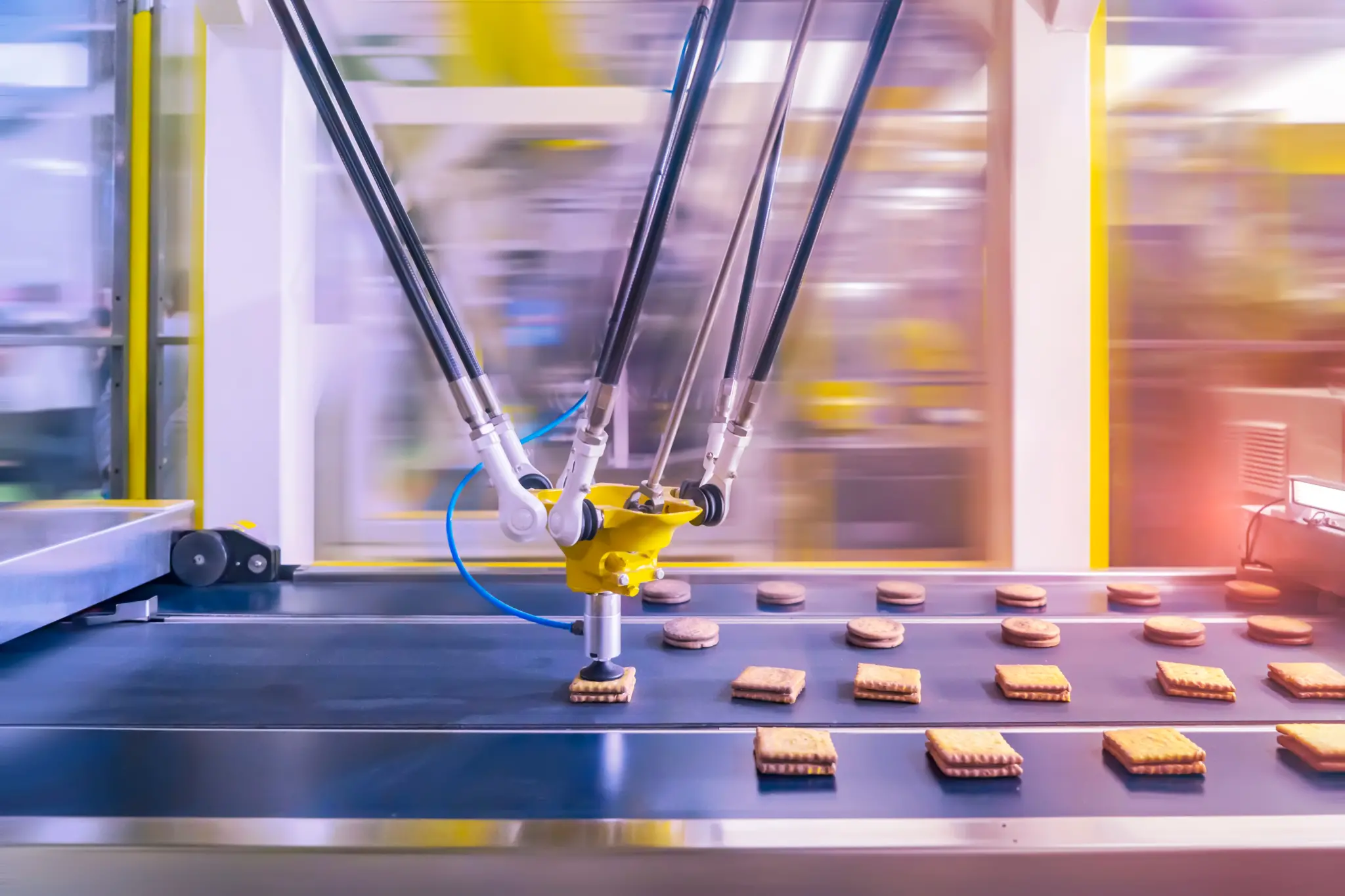
Air that comes in direct contact with food items must be from an oil-free source.
Oil-Free Compressor Maintenance
Because an oil-free machine does not have the lubrication that cools an oil-flooded unit, there’s more heat for their cooling systems to remove. As a result, it’s extremely important to make sure your oil-free air compressor’s heat exchangers and fans, are operating properly.
The critical consideration for maintenance is filters. Clogged filters will impede and eventually block airflow, causing energy loss that is both unnecessary and avoidable. As a result, we recommend:
-
- Checking the differential pressure in inline compressed air filters
- Regular cleaning of intake vents
- Checking and cleaning inlet air filters
- Inspecting and cleaning your heat exchangers based on your environment
And with dryers, you’ll want to make sure that drains and traps are clear and open.
Kaishan always recommends oil-free compressors for those applications where the air comes in direct contact with the product. However, we make sure our customers recognize and are prepared for the additional maintenance requirements of oil-free machines.
We encourage them to explore using oil-lubricated compressors for all non-contact applications and use food-grade oil anywhere incidental contact is possible.
Oil-Free vs. Oil-Lubricated: Your Options
For us, the calculation is straightforward:
First, you need an oil-free compressor for applications like beverage carbonation, where there is direct contact with food.
Second, in applications without any direct contact with the products, you have a choice. You can go oil-free, recognizing the drawbacks. Or you can use oil-lubricating equipment under the following conditions:
-
- Filter aggressively. You can get oil down to negligible amounts with good filtration. Using a one-micron coalescing filter, an oil-lubricated rotary screw compressor can produce air with an oil content of less than one part per million.
- Use food-grade lubricants. It’s always a best practice to follow U.S. FDA regulations and use food-grade oils in your oil-lubricated air compressors in areas like packaging with incidental food contact. But remember, you will need to change the oil more often. Most manufacturers recommend changing food-grade lubricants at 4,000 hours (compared to 8,000-hour intervals for regular oils).
You’ll want to work closely with your independent Kaishan distributor to design a maintenance program. As always, poor maintenance will result in premature wear for either technology and will often void warranties.
Once again, that’s in non-contact areas. Where you have air that comes in direct contact with food, oil-free air still is a good idea.
Many Food Processors Go with Oil-Lubricated Compressors
Because of the limitations of oil-free machines, many food processing plants rely on oil-lubricated rotary screw compressors and food-grade oil for applications where the air does not come in direct contact with the product.
Kaishan has several different oil-lubricated models that are used in food processing plants, including our KRSD and KRSP premium single-stage rotary screw air compressors. We also offer Kaishan industrial vacuum pumps that reduce energy use and lower operating cost.
Consulting Help
Most food processors will benefit from a close relationship with an air compressor professional. You can count on our nationwide network of independent distributors for expert, on-site help or consultation. They are factory-trained to help you develop and operate an air compressor system that meets your needs.
Key Takeaways
-
- Industrial air compressors are used in a variety of applications in food processing plants, including cleaning, packaging, powering pneumatic tools, cooling, refrigeration and transportation.
- Many food processing plants use oil-free compressors where the compressed air comes in contact with the product.
- Maintenance is critical for all air compressors but is especially critical for oil-free units.
- Oil-lubricated compressors offer many advantages in applications where there is no direct contact with food.
- Kaishan’s new oil-free compressor, the KROF, is setting new standards for reliability, efficiency and warranty protection.
Let Us Help
Choosing the right air compressor can be an important factor in the long-term success of your food processing plant. Save time and money by making sure your compressed air system is optimized for your operation. If you need help finding a qualified professional to evaluate your needs and find the right compressor for your food processing plant, get in touch with the experts at Kaishan. Contact us today.
Random stat or
customer quote
textXXtext
text
You’ll find air compressors in every stage of the food and beverage production process because of their versatility, cleanliness and flexibility.

